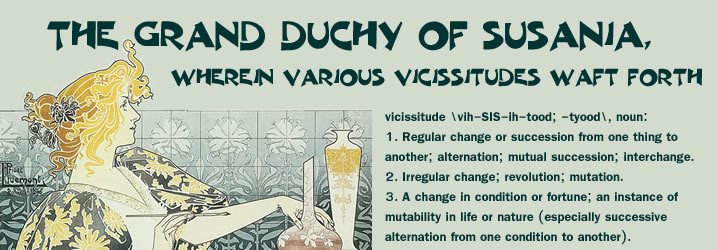Let me just start by saying that I like throwing peanut shells on the
floor. It makes me feel better about my own much less messy apartment.
For that reason, Logan's Roadhouse will always hold a special place in
my heart. It delights my Inner Child.
Restaurants, for me, will always be a treat and a pleasure, except for
those rare occasions when I've been to one for every meal in the space
of a few days. It's like eating Godiva Chocolates incessantly - they're
still fabulous, but after a while you get tired of them if you have them
every day. Restaurants are my Godiva Chocolates. Then again, Godiva
Chocolates are my Godiva Chocolates. You'd have to be a soulless heathen
not to like them.
I went to restaurants so rarely as a child that the few occasions we
did go tend to stand out in my mind as holidays; Special Events to mark a
Special Day, or the simple fact that Mom had put her foot down and was
sick and tired of cooking pinto beans and biscuits, which Dad required
every night for supper. (I don't personally remember growing tired of
them myself; they don't hold any negative associations for me and I
still like them.) But we ate so many meals at home; even the traditional
Nashville Sunday Lunch at a Restaurant after Church was denied us. How
my sisters and I envied our lucky peers who always went out after
Church. We were far more likely to go home to leftovers and Yard Work.
Talk about your negative connotations!
A Snow Day story: we had driven back to Nashville from Christmas in
Batesville, Arkansas with my mother's relatives, and we had driven all
night to beat a snowstorm (driving east from Memphis; remember, weather
always comes from Memphis if you live in Nashville) and arrived home
around 3 am. When we got up later that morning, the snow had hit and we
had a few inches on the ground. I don't know why we didn't just eat
breakfast at home, but instead we drove to Green Hills to a restaurant
that was practically empty except for us; I recollect pancakes, and a
big screen TV showing old Lone Ranger serials. It was the most delicious
feeling; of snow falling that we would play in that afternoon, of
pancakes that were not served in our house but in a restaurant, with the
added kicker of continual Westerns. We girls didn't particularly care
for Westerns, but we knew our Dad loved them, and so it was a guaranteed
mood-lifter. Like watching the football game with him - he was so
easily angered, that anything that made him happy, however briefly, was a
blessing to us as well.
A restaurant is not just a place that serves food; it's an encapsulated
moment in time with several important elements: Food, conversation, and
novelty. I can eat alone, and do on occasion, but that's so I can read a
book or a magazine, which is almost another sort of conversation, isn't
it? My most meaningful discussions come over a meal. Why else do you
think Jesus had the Last Supper? Or ate in the home of a tax collector
in the company of prostitutes? Because He knew it was the best way to
talk to people. There's something about food and the way it loosens up
our emotional and intellectual tongues, and I'm sure some scientist
could make a very interesting study about the correlation between brain
functions, emotional response, and the act of eating.
The novelty comes from having choices. If I go home to eat, I can
almost guarantee that I will be eating one of three things: pasta, rice,
or stew. I rarely buy vegetables because I never want to prepare them
and they go bad before I can use them, and so the only way I can count
on occasional roughage is by going to a restaurant and getting a salad
or a veggie platter. Given a choice between vermicelli with sauce from a
jar in my fridge and a Caesar Salad with Cajun-grilled chicken on top,
my response is predictable, particularly when you take into account that
the pasta would be eaten in front of the TV, while the salad would be
accompanied by an interesting conversation.
And my family wonders why I can't seem to save any money. Let's see:
I'm not dating anyone, so my chief socialization comes from going to
restaurants with friends. I'll spend $10 on the average in a restaurant,
compared to $2 for a meal at home. At least it's only lunch and dinner -
I never eat breakfast in a restaurant except 3-5 times a year, tops.
Even when I'm on a business trip with an expense account, I still tend
to go to a guy on the corner and get a bagel and cream cheese for $1.25.
I'm not a dining snob; I'm perfectly happy in any average fern bar. I
wouldn't be comfortable in a really fancy-shmantzy restaurant. But I
will not eat a salad constructed entirely of iceberg lettuce. I want
mixed greens or romaine, and even spinach is starting to become
pedestrian to me.

